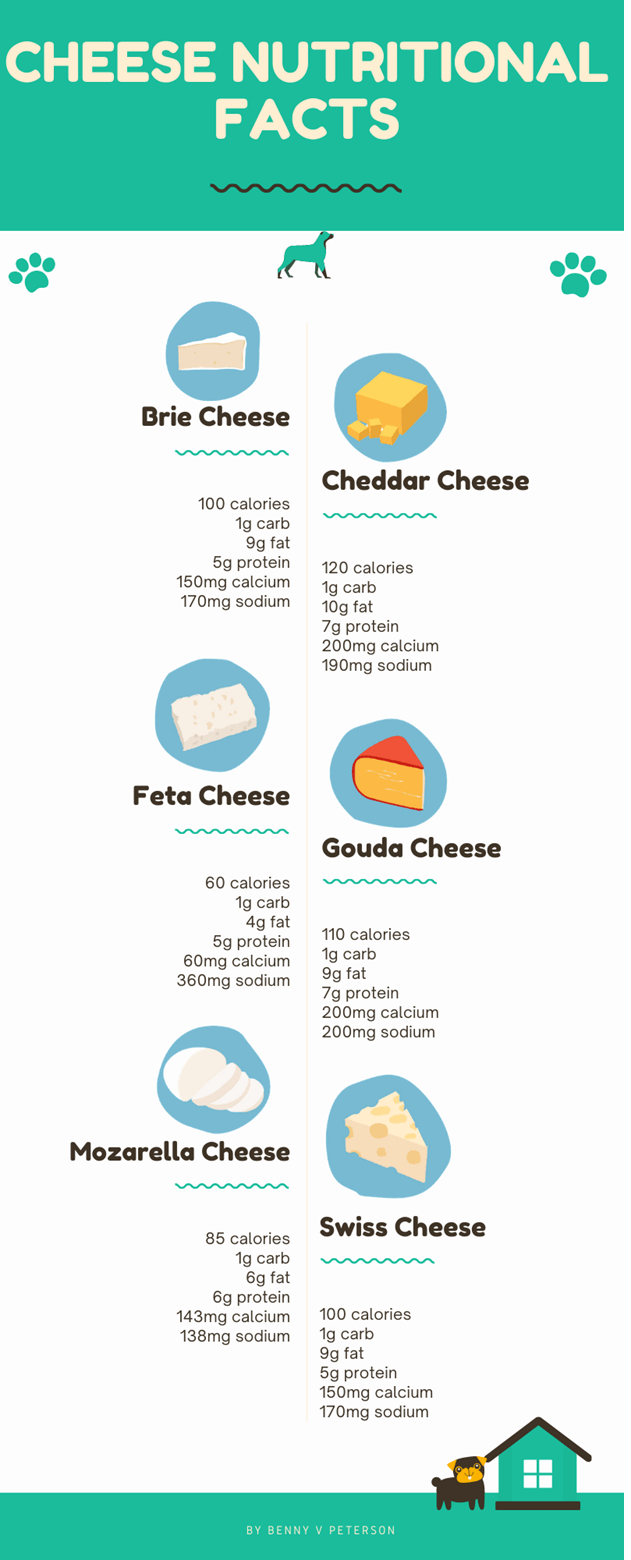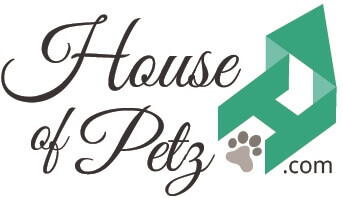If you’ve ever devoured a slice of cheese pizza while your dog gazes longingly at your slice of pie, you might be wondering if dogs can eat cheese. Maybe you just want to know if cheese is harmful to dogs. Given that the food can be a nourishing treat for humans, it’s reasonable to wonder if it could also benefit your pet.
When it comes to whether dogs can eat cheese, there is no simple yes or no answer. Although some dogs may be fine after a small amount of cheese, many are lactose intolerant, and too much cheese can cause health problems in dogs.
Here’s a rundown of the benefits and drawbacks of sharing this treat with your dog.
Cheese Nutritional Facts
There are many types of cheese, in this infographics, we are going to list out each one’s nutritional facts so you can know the right one for your dog. (Or maybe you!)

Benefits of cheese for your dog
Protein, calcium, vitamin A, vital fatty acids, and B-complex vitamins are all found in cheese. Cheese is a favorite of most dogs, and trainers frequently used it to motivate canines. This treat can also be used to hide medications for dogs who need to take medication.
The right amount matters
While feeding cheese to your dog is generally harmless, there are a few things to keep in mind. Cheese is high in fat, and giving your dog too much of it on a regular basis can lead to weight gain and obesity. Even worse, it could cause pancreatitis in dogs, which is a dangerous and potentially fatal infection. In addition to the issues caused by the high-fat level, some cheeses contain hazardous herbs or other ingredients for dogs, such as garlic, onions, and chives.
Lactose intolerant in dogs
A delectable treat like cheese is not suitable for all canines. Many dogs suffer from lactose intolerance, which means they can’t eat dairy products. While most cheeses contain less lactose than other dairy products such as whole milk, dogs that are lactose intolerant may still experience negative effects from cheese.
This is why, before giving your dog cheese, you should see your veterinarian and talk with them so they can prescribe the right amount of cheese your god can consume.
Avoid cheeses such as blue cheese and Roquefort. Not only are these cheeses high in fat, but when they get too ripe, they also create roquefortine, which can be fatal to dogs if eaten.
Also, avoid cheeses like Havarti or cream cheese that contain herbs and garlic. Garlic and onions are both poisonous to dogs.
After feeding your dog a tiny amount of cheese, keep an eye out for signs of digestive disturbance such as vomiting or diarrhea.
Types of cheese you can feed to your dogs
Soft cheese such as mozzarella, cheddar, and string cheese
In moderation, a dog can eat all of the basic cheeses that are typically present in the house. Mozzarella and most other soft cheeses are rich in fat, so if you want to share a slice with your dog every now and then, go for a low-fat one.
Low sodium cottage cheese
Cottage cheese can be a good, occasional supplement to your dog’s diet as long as it is low in salt. Cottage cheese is high in protein, calcium, and vitamins (provided it is of acceptable quality). Cottage cheese also contains probiotics, which can help to calm a dog’s upset stomach.
Plain low fat cream cheese
You can offer plain cream cheese to your dog, but only in little, occasional amounts. Cream cheese is rich, fatty, and high in calories, so it should be eaten in moderation, preferably low-fat. Stick to plain cream cheese instead of flavored (yep, we’re talking about that herb and garlic cream cheese) because flavored cream cheese might contain hazardous substances like garlic or onions.
Types of cheese you should not feed to your dog
Roquefort, blue cheese, and other French cheeses
These cheeses should be avoided by dog owners not just because of their high fat content, but also because “when blue cheese becomes overripe, it produces roquefortine, a potentially deadly toxin for dogs to consume.” Furthermore, these cheeses have some of the highest salt levels.
Herbs, garlic, and other seasonings in cheese
Herbs or garlic are added to several types of cheese, including Havarti and even cream cheese, to enhance the flavor. Keep these out of your dog’s reach because some of their ingredients are poisonous to dogs, such as garlic and onions.
Goat cheese, brie, and feta cheese
Even if they taste wonderful to us, it’s preferable to avoid feeding them to your dogs. They also have some of the highest levels of saturated fat of any cheese. Excess fat in a dog’s diet can cause pancreatitis, which is a dangerous and frequently fatal illness in dogs.
Summary
Yes, dogs can eat cheese, but not all canines are allowed to. Lactose intolerance affects certain dogs because they lack the lactase enzyme required for its digestion. Other dogs may be allergic to the proteins found in cow’s milk, resulting in a response to cheese.
If you have any questions concerning this topic, ask away in the comment section, we will do our best to make sure you are replied to. And make sure to share this article with whoever might need these pieces of information.
Written by Benny V Peterson. Check his website here: bennywrites.com.ng
